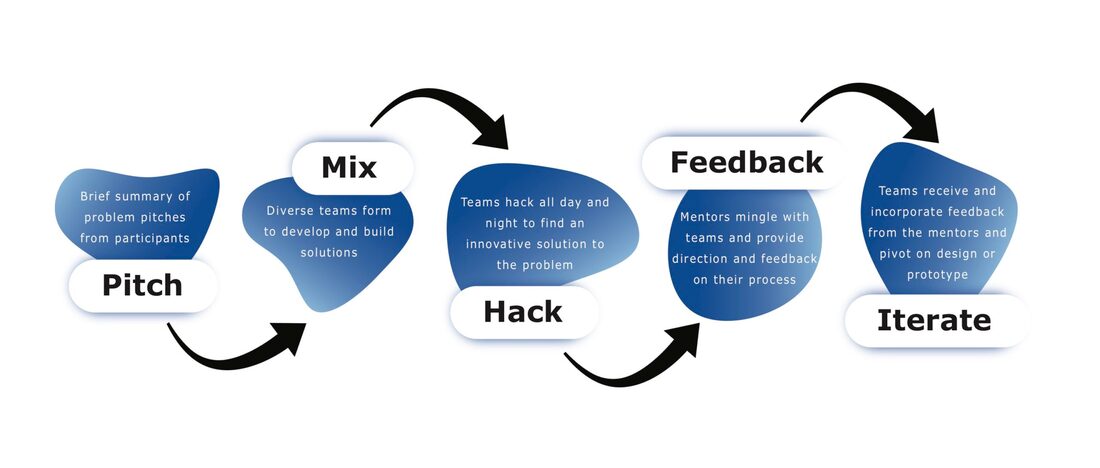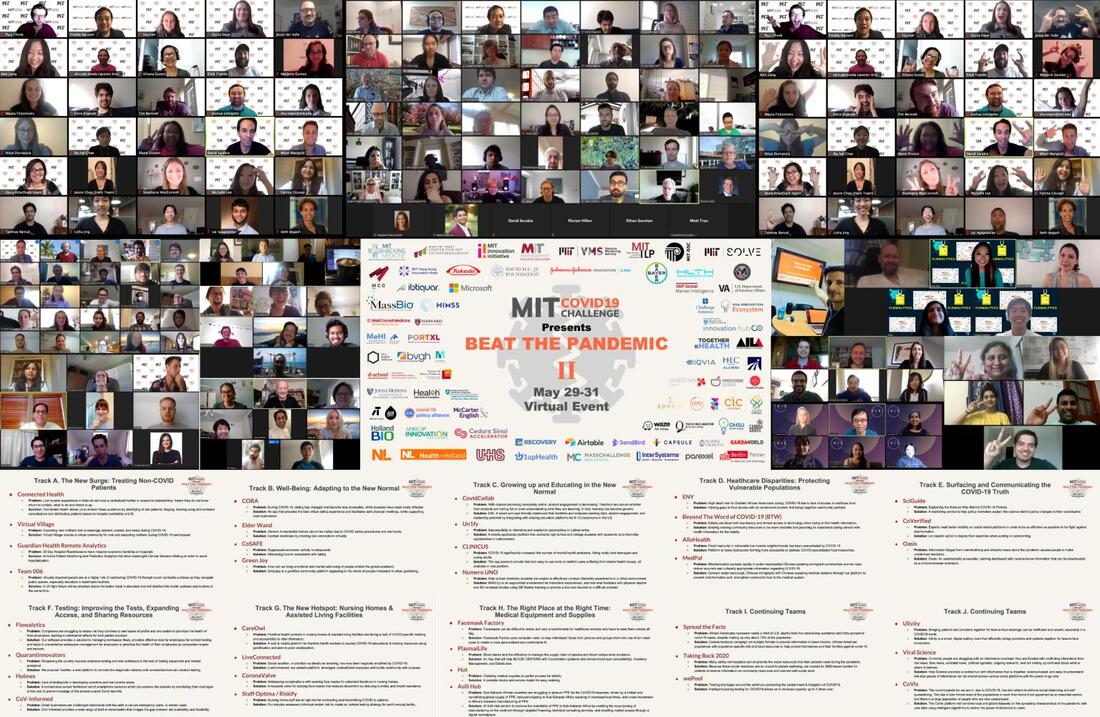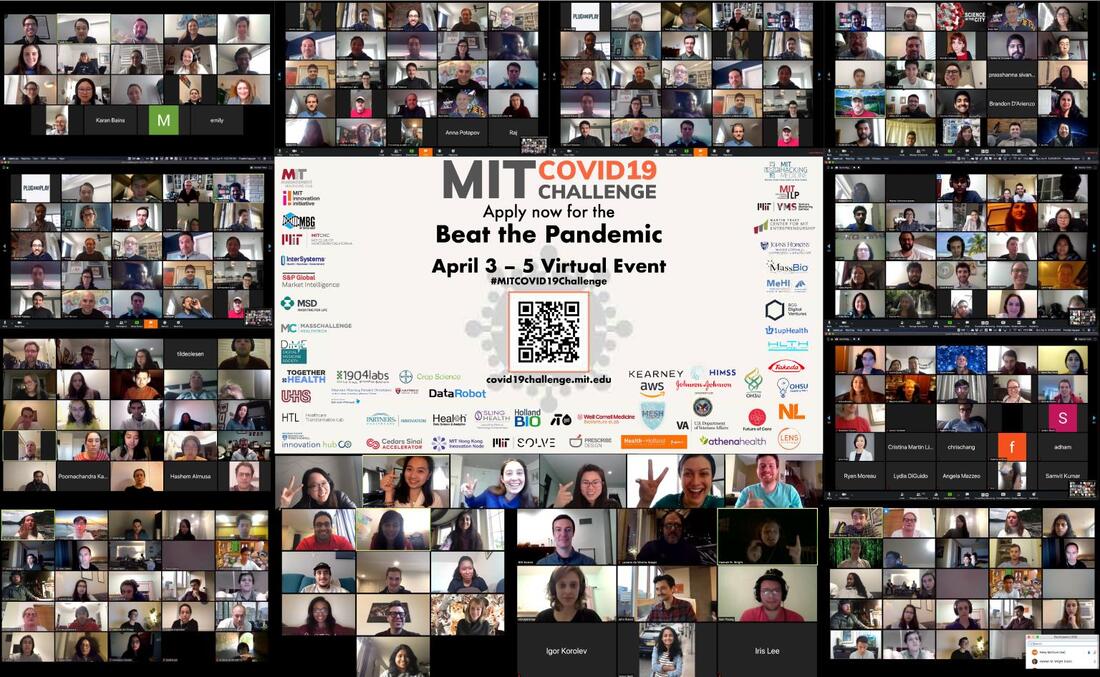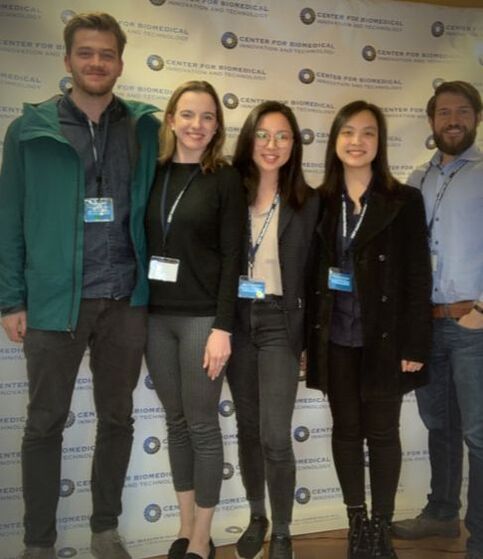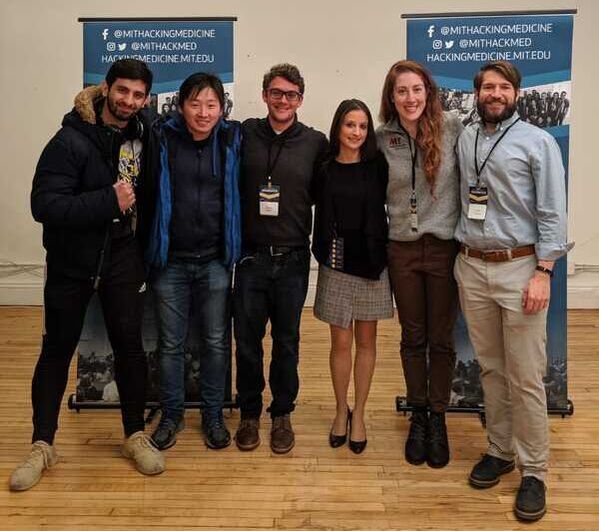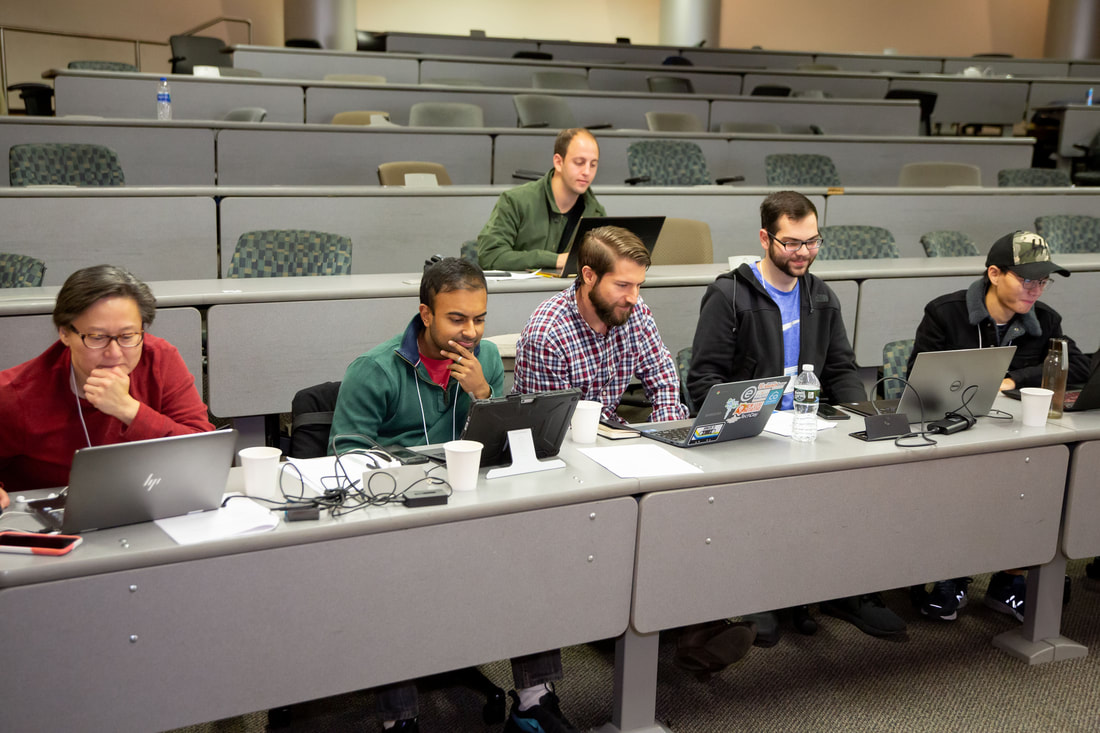XPC Healthcare + AI Hackathon (Participant)
On a mission to bring together the brightest minds at the intersection of healthcare and AI, participants had access to:
https://hackathon.xprimarycare.com/
- Mentors across clinical, engineering, product, and legal domains
- Pricing, claims, and clinical data sets
- Latest tech available to builders in healthcare
https://hackathon.xprimarycare.com/
Your browser does not support viewing this document. Click here to download the document.
Yale Center for Biomedical Innovation and Technology: Healthcare Hackathon 2021 (Mentor)
This event focused on big data & real-world evidence in the context of four primary tracks:
http://yalehackhealth.org/
- Medical sensors & IoT
- Clinical trials
- Economic forecasting
- Epidemiology & disease modeling
http://yalehackhealth.org/
Your browser does not support viewing this document. Click here to download the document.
MIT COVID-19 Challenge: Beat the Pandemic II Hackathon (Organizer)
Beat the Pandemic II is the next event under the MIT COVID-19 Challenge series, taking place May 29-31, 2020. This event is a follow-on to the first Beat the Pandemic event, which occurred in early April.
In this 48-hour virtual event, participants tackled the most critical unmet needs that have arisen now that we are several months into the COVID-19 outbreak. Participants formed teams on Friday, May 29th to home in on key problems and generated solutions, including proof of concepts, prototypes, and preliminary vision for execution. Throughout the weekend, teams connected with mentors to refine their solutions. On Sunday, May 31st, teams reconvened to present their work before a panel of expert judges. After the weekend, the best ideas and teams were provided with the opportunity to co-develop and implement their solution with the support of our partners.
https://covid19challenge.mit.edu/beat-the-pandemic-2/
In this 48-hour virtual event, participants tackled the most critical unmet needs that have arisen now that we are several months into the COVID-19 outbreak. Participants formed teams on Friday, May 29th to home in on key problems and generated solutions, including proof of concepts, prototypes, and preliminary vision for execution. Throughout the weekend, teams connected with mentors to refine their solutions. On Sunday, May 31st, teams reconvened to present their work before a panel of expert judges. After the weekend, the best ideas and teams were provided with the opportunity to co-develop and implement their solution with the support of our partners.
https://covid19challenge.mit.edu/beat-the-pandemic-2/
MIT COVID-19 Challenge: Beat the Pandemic Hackathon (Mentor)
The MIT COVID-19 Challenge event, Beat the Pandemic, was the second in a series of virtual hackathons. Over the course of two days, multi-disciplinary teams collaborated to develop innovative solutions that helped address the COVID-19 crisis. It focused on connecting teams with the tools and resources needed to develop mature solutions that can be implemented by our partners. After the Challenge, selected teams had the opportunity to bring their solutions to life with the support of various industry connections.
In this 48-hour virtual event, April 3-5 2020 we helped tackle the most critical unmet needs caused by the COVID-19 outbreak: protecting vulnerable populations and helping health systems.
https://covid19challenge.mit.edu/beat-the-pandemic/
https://www.mobihealthnews.com/news/new-covid-19-challenge-out-mit-seeks-solutions-hackers-home
https://www.wsj.com/articles/hackathons-target-coronavirus-11586424603
In this 48-hour virtual event, April 3-5 2020 we helped tackle the most critical unmet needs caused by the COVID-19 outbreak: protecting vulnerable populations and helping health systems.
https://covid19challenge.mit.edu/beat-the-pandemic/
https://www.mobihealthnews.com/news/new-covid-19-challenge-out-mit-seeks-solutions-hackers-home
https://www.wsj.com/articles/hackathons-target-coronavirus-11586424603
Weill Cornell School of Medicine: AI Health Hackathon 2020 (Mentor)
THE NYC HEALTH ECOSYSTEM + THE NEXT GEN OF TALENT + WEEKEND INCUBATION
This Health Hackathon aimed to foster innovative multidisciplinary team science using artificial intelligence and machine learning. Artificial Intelligence (AI) and Machine Learning (ML) provide an exceptional opportunity to accelerate and revolutionize human health. The Hackathon nurtured collaborations across different fields and included wearable devices, smart phones, other sensor-related technology, genetics, images and electronic health records. It was open to all students and research scientists including bioinformatics, computer programming, bio-statistics, and other computer programming related disciplines. A key component of the Hackathon was team development, which included students and researchers at all levels of the research process.
AI and machine learning approaches have a variety of applications throughout all stages of the translational science spectrum. They require interdisciplinary collaborations to support well-defined projects emphasizing development of machine intelligence-based systems, emerging tools, and modern technologies for diagnosing disease and health conditions.
https://health2020.splashthat.com/
https://news.weill.cornell.edu/news/2020/03/health-hackathon-invites-diverse-talent-pool-to-put-ai-and-machine-learning-to-work-for
This Health Hackathon aimed to foster innovative multidisciplinary team science using artificial intelligence and machine learning. Artificial Intelligence (AI) and Machine Learning (ML) provide an exceptional opportunity to accelerate and revolutionize human health. The Hackathon nurtured collaborations across different fields and included wearable devices, smart phones, other sensor-related technology, genetics, images and electronic health records. It was open to all students and research scientists including bioinformatics, computer programming, bio-statistics, and other computer programming related disciplines. A key component of the Hackathon was team development, which included students and researchers at all levels of the research process.
AI and machine learning approaches have a variety of applications throughout all stages of the translational science spectrum. They require interdisciplinary collaborations to support well-defined projects emphasizing development of machine intelligence-based systems, emerging tools, and modern technologies for diagnosing disease and health conditions.
https://health2020.splashthat.com/
https://news.weill.cornell.edu/news/2020/03/health-hackathon-invites-diverse-talent-pool-to-put-ai-and-machine-learning-to-work-for
Yale Center for Biomedical Innovation and Technology: Healthcare Hackathon 2019 (Participant)
This event focused on Social Determinants of Health in the context of five primary tracks:
https://yalehackhealth.org/
- Affordable housing
- Environment and health
- Food insecurity
- Medical - legal partnerships
- Behavioral health
https://yalehackhealth.org/
Your browser does not support viewing this document. Click here to download the document.
|
Your browser does not support viewing this document. Click here to download the document.
|
MIT Hacking Medicine Grand Hack: NYC 2019 (Participant)
MIT Hacking Medicine brought the MIT Grand Hack to New York! This was a weekend to brainstorm and build innovative solutions with hundreds of like-minded engineers, clinicians, designers, developers and business people. Within the multi-theme event, there was a healthcare challenge for everyone!
https://grandhack.mit.edu/nyc/
https://grandhack.mit.edu/nyc/
Stevens Institute of Technology: HealthTech Hackathon 2019 (Participant)
The annual Stevens Institute of Technology HealthTech Hackathon was a sprint-like design event in which participants with diverse perspectives — clinicians, students, entrepreneurs, industrial designers, engineers, programmers and healthcare professionals — formed teams to collaborate on solutions to pressing problems in healthcare today.
The 2019 event took place over an intense, fun-filled three-day weekend in which participants ideated, iterated and innovated to develop novel solutions to a specific healthcare challenge. The Hackathon culminated in a team pitch competition with cash awards given to the best prototype software or apps.
https://www.stevens.edu/research-entrepreneurship/stevens-venture-center/about-stevens-venture-center/2019-healthtech-hackathon
The 2019 event took place over an intense, fun-filled three-day weekend in which participants ideated, iterated and innovated to develop novel solutions to a specific healthcare challenge. The Hackathon culminated in a team pitch competition with cash awards given to the best prototype software or apps.
https://www.stevens.edu/research-entrepreneurship/stevens-venture-center/about-stevens-venture-center/2019-healthtech-hackathon
Copyright © 2013, by Erick W. Froede. All rights reserved.
